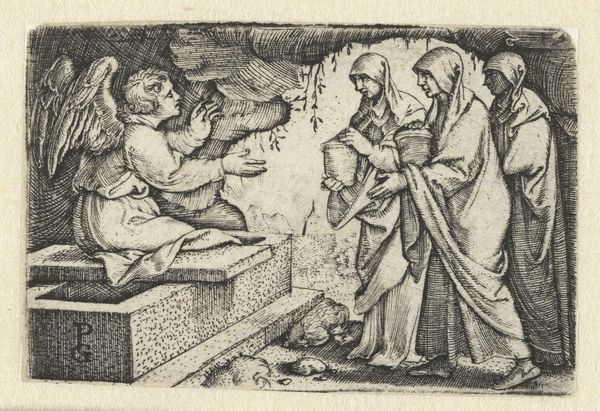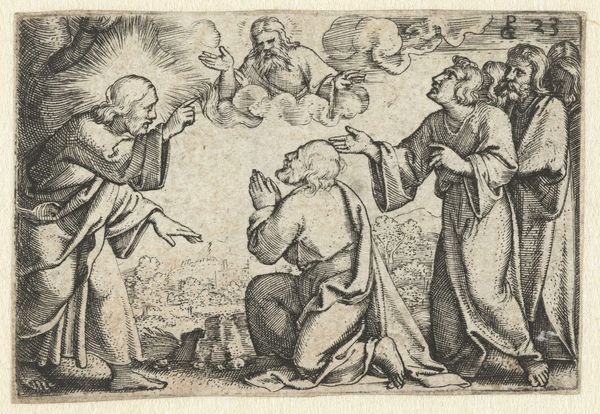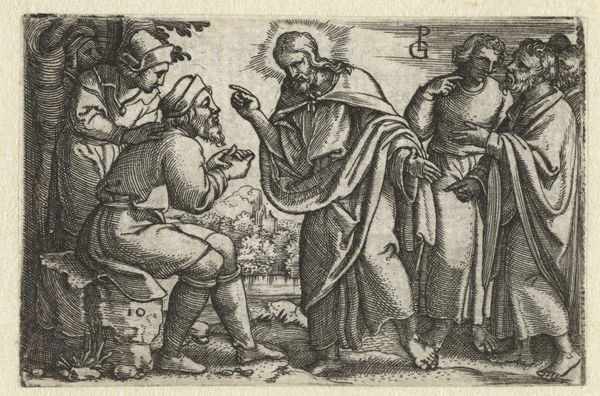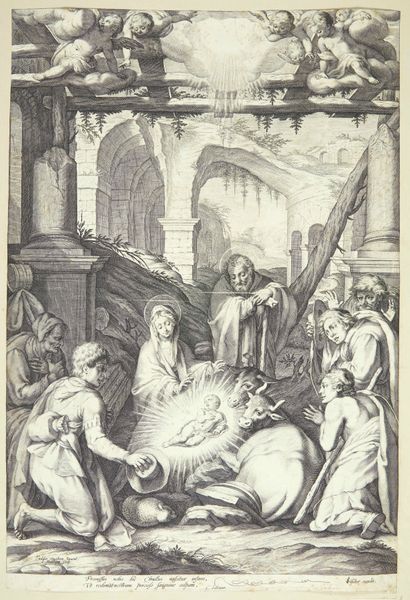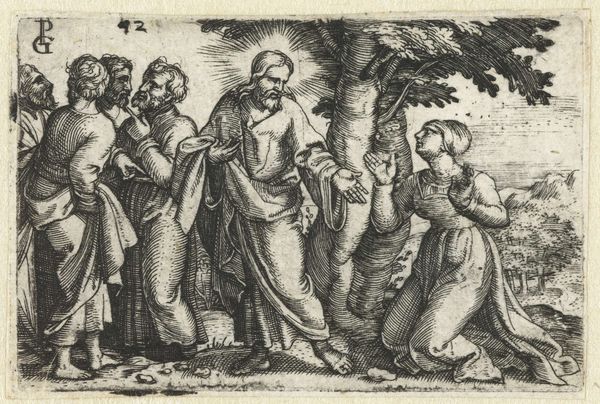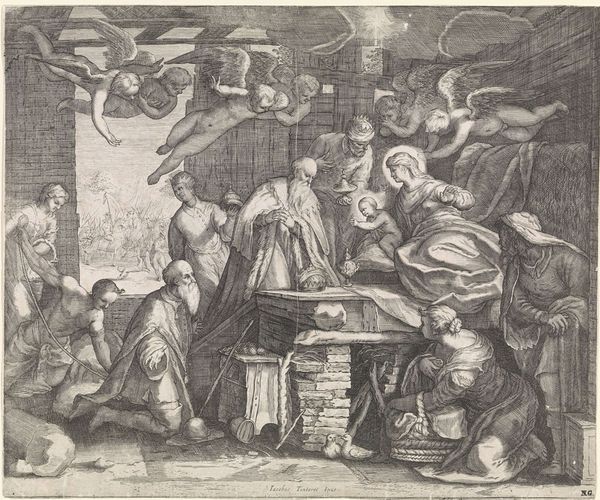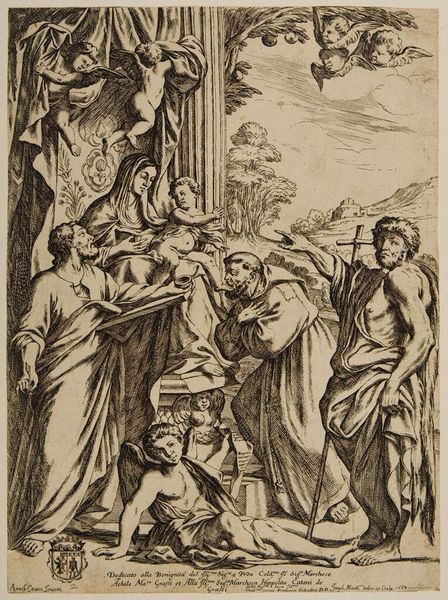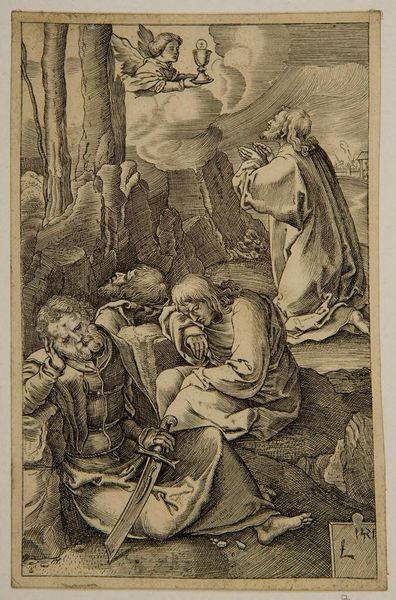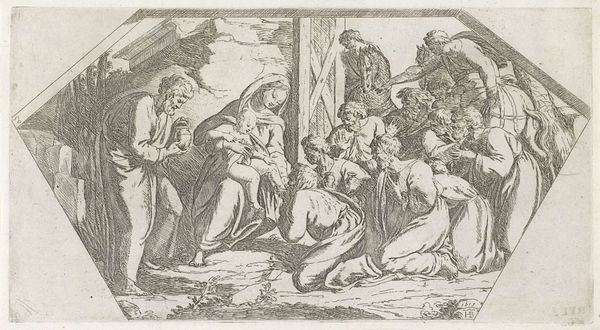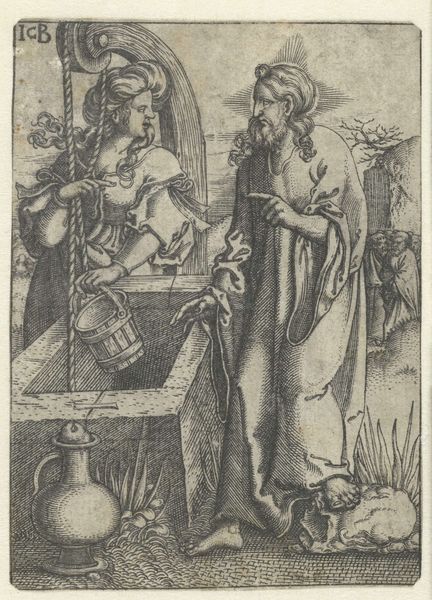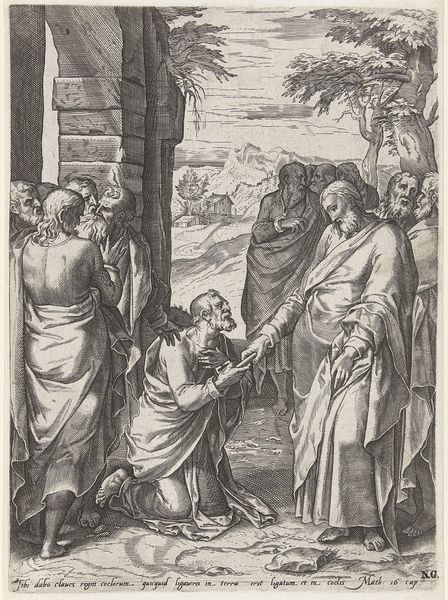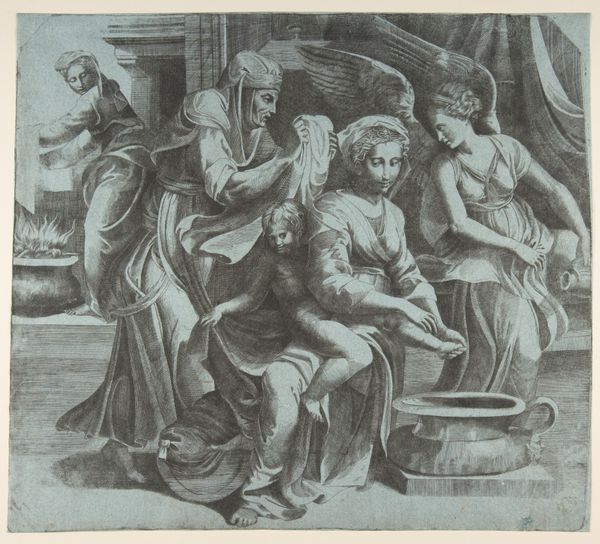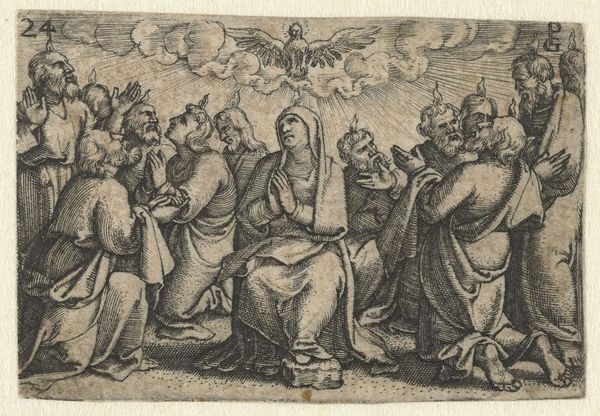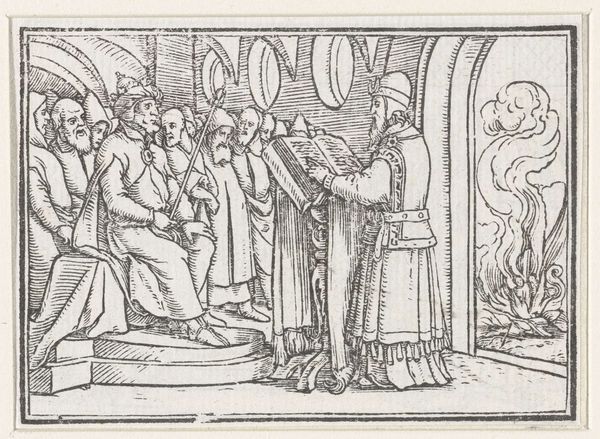
print, engraving
#
narrative-art
# print
#
figuration
#
northern-renaissance
#
engraving
Dimensions: height 40 mm, width 60 mm
Copyright: Rijks Museum: Open Domain
Georg Pencz created this engraving, The Three Marys at the Empty Tomb, sometime in the first half of the 16th century. This image represents a key moment in Christian theology: the discovery of Christ's resurrection. Pencz was a leading member of the Nuremberg School, and his work reflects the social and intellectual ferment of the Reformation in Germany. Religious images were not just devotional aids, they were tools in a battle for hearts and minds. Pencz himself was briefly exiled for his association with radical reformers, making this small image part of a larger struggle over religious authority. Notice how the artist has combined the classical form of the angel with the distinctively German features of the women. To fully appreciate this image, we need to understand the complex interplay of religious belief, social upheaval, and artistic practice that defined Pencz's world. A close look at the artist's biography and the religious debates of the time will help us understand how the image functions in its original context.
Comments
No comments
Be the first to comment and join the conversation on the ultimate creative platform.
